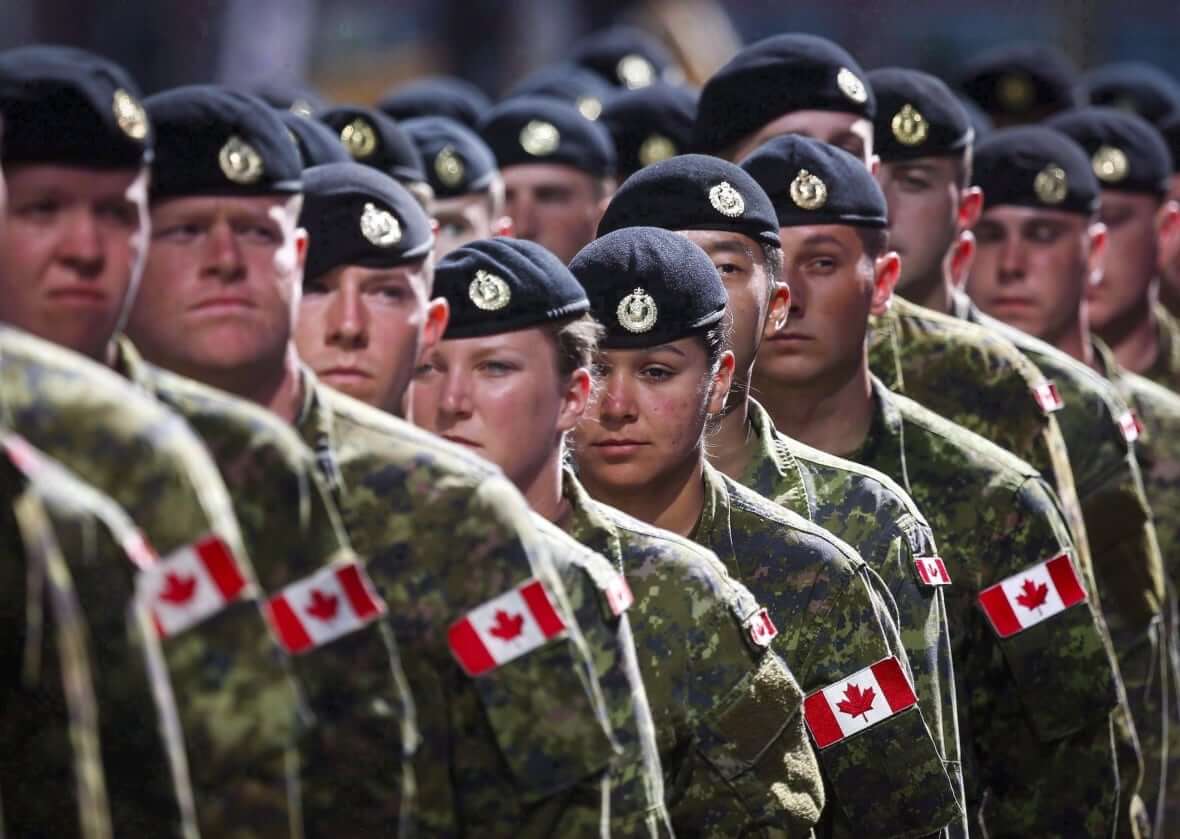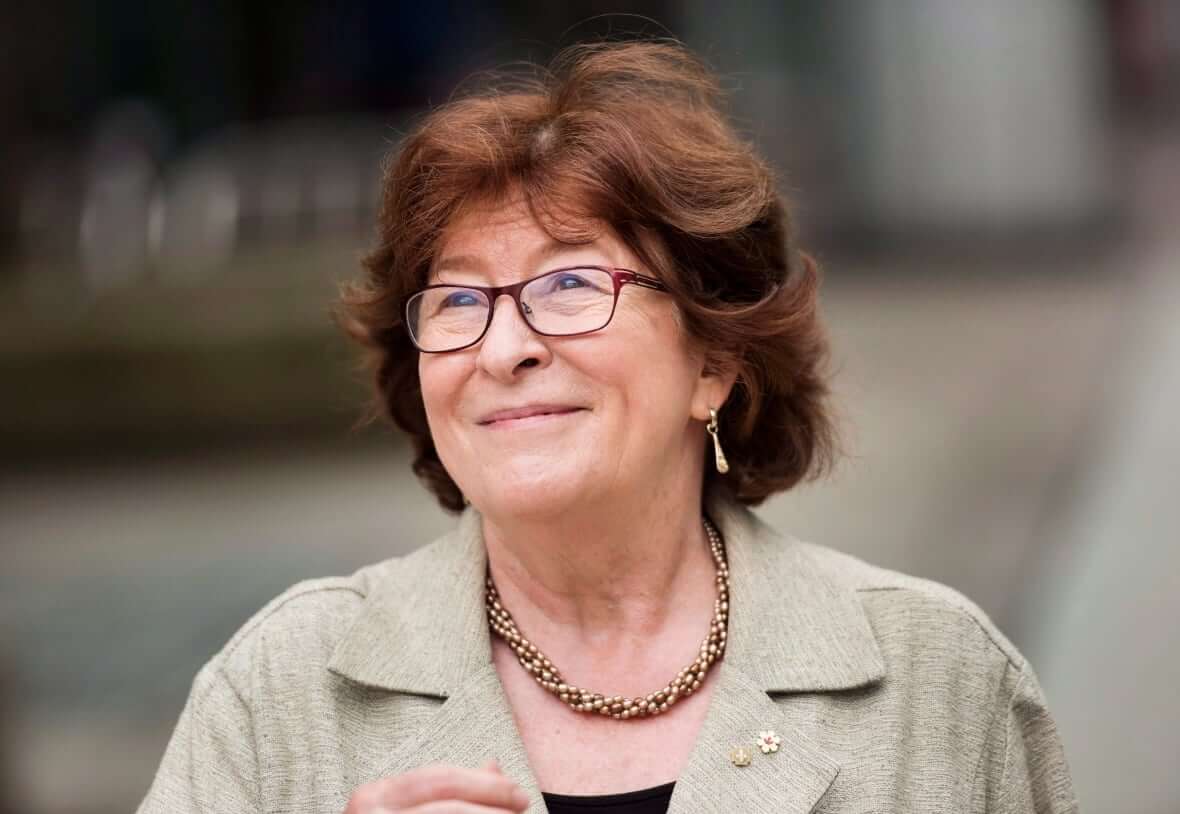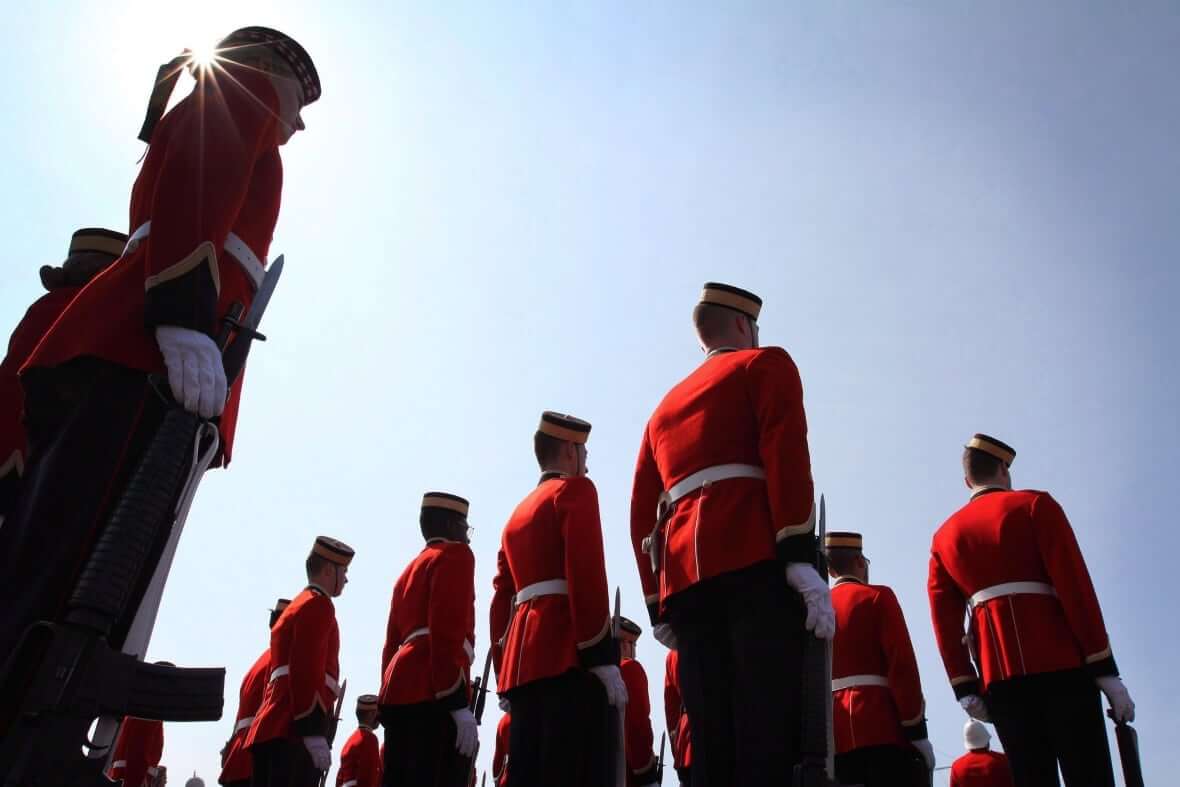Military should give up control of sexual assault cases permanently: former Supreme Court justice

The time has come for the Canadian Armed Forces to permanently give up control of investigations of sexual offences by its members, says a damning new report by a former Supreme Court justice that recommends sweeping changes — including an overhaul of the recruiting and military college systems.
The release of Louise Arbour’s report concludes more than a year of work. Among its 48 recommendations is a call for civilian police and courts to handle all sexual assault cases involving allegations against military members going forward.
“The handling of sexual offences by military courts over the past 20 years has done very little to improve efficiency, discipline and morale. If anything, it has served to erode it,” Arbour said Monday as she presented her report.
“Therefore, I see no basis for the Canadian armed forces to retain any jurisdiction over sexual offences and that jurisdiction should be vested exclusively with civilian authorities.”
Military sexual trauma complainants have been demanding for decades that civilians take over sexual misconduct cases, arguing that the Canadian Armed Forces has failed to properly support victims and to thoroughly investigate and prosecute cases.
In one of her first acts in the ministry, Defence Minister Anita Anand — acting on an interim recommendation from Arbour last year — moved to temporarily hand over in-progress investigations of sexual misconduct claims to civilian police forces. Complainants retained the right to have their cases handled by the military system.
The military was granted jurisdiction over its own sexual assault cases in 1988.
Arbour said the change is necessary because the military justice system often takes years to implement legal improvements made in the civilian system. She said that while non-military courts are imperfect, they have more experience in sexual misconduct cases and are better equipped to handle them.
Anand said that of the 48 recommendations Arbour makes in her report, the ministry is moving to implement 17 in the near term. The remainder, she said, require more complex analysis that will take place in the coming months.
“I agree with all of Madame Arbour’s recommendations. I welcome all of them,” Anand said Monday. “I spoke with the prime minister and he as well agrees with all of Madame Arbour’s recommendations.”
Anand said that, in some cases, her department will consult with military officials to decide how to implement certain recommendations — especially ones involving systemic changes — while in other cases military officials will be expected to explain why a particular recommendation could not be pursued.
The minister said the process of implementing the report’s recommendations will be overseen by an external monitor reporting to her.
Arbour calls for ‘clarity’ on report’s recommendations
Arbour said that while the military is subject to civilian control, it has been “unwilling or unable” to fully implement outside recommendations in the past. Instead, the military has chosen the “letter over the spirit, often the appearance of implementation over substance,” Arbour wrote.
If the military’s culture is ever going to change, she wrote, it needs to fully accept a “paradigm shift.”
“When thinking about culture change in response to the sexual misconduct crisis, the CAF leadership seems to have been incapable of examining which aspects of its culture have been the most deficient,” Arbour wrote.
“In none of the initiatives it has launched is there a single reflection on whether its insular, hierarchical structures may have facilitated the abuse of power that characterizes most sexual misconduct.”
Arbour said that while her report does not carry the authority of an order from the court, she hopes that its “force of persuasion” will ensure that her recommendations are implemented — and that she is informed quickly if they are not.
“One of the most important recommendations I made in this report is for the minister to say publicly, within a short time frame, before the end of the year, which ones they don’t intend to move on,” Arbour said. “The current problem is that you never get a clear answer on that.
“The first clarity that we should expect is, if something is not going to happen, just say it. That already would bring a lot of clarity.”
Scrapping military colleges
Arbour said that a culture of misconduct at the Royal Military Colleges in Kingston, Ont. and in St-Jean Saint-Jean-sur-Richelieu, Que., should be addressed by a thorough review of the institutions.
That review should determine, Arbour said, if the quality of education offered and the culture of socialization support the continued operation of the colleges as undergraduate degree-granting institutions — or whether officer candidates should start attending civilian universities.
“The continued prevalence of sexual misconduct at the military colleges is well documented and I think its harder to address these issues there than in a civilian environment,” she said Monday.
Anand said Arbour’s recommendation on military colleges is an example of a recommendation that could require systemic change, and her department would have to consult before deciding whether it’s possible.

Arbour also said Canadian Armed Forces (CAF) recruiting needs to be restructured to simplify enrolment and basic training by significantly shortening the recruitment phase.
She said that by doing that and creating a probationary period, the CAF could conduct more detailed assessments of candidates and release candidates as necessary.
Anand told reporters she accepted this recommendation and will work to “create probationary periods in order to better evaluate recruits.” The minister said she would also work to improve the “professional competency of recruiters.”
Going forward, Arbour recommends that the CAF be stripped of its ability to object to any complaint related to sexual harassment or discrimination on the basis of sex being brought before the Canadian Human Rights Tribunal.
“The CAF should no longer object to the jurisdiction of the CHRC on the basis that internal remedies, including its grievance process, have not been exhausted,” Arbour wrote.
‘Women should no longer feel like guests in the CAF’
“They now need to adapt to a new reality — the women warriors are here to stay,” wrote Arbour in her report. “And they will stay on their terms, seeking the substantive equality to which they are entitled.
“Women should no longer feel like guests in the CAF, as a former senior female officer told me many felt. We continue to see resistance, particularly in historically male-dominated organizations with ‘boys’ club’ mentalities, such as the CAF.”
The Canadian Forces’ public image has been pummeled in recent years by an unrelenting series of sexual misconduct scandals. Experts say they can’t think of another military anywhere else in the world that has seen so many senior leaders swept up in scandal at the same time.
Since early February 2021, 13 current and former senior Canadian military officers have been sidelined, investigated or forced into retirement from some of the most powerful and prestigious posts in the defence establishment.
CBC News has documented cases of sexual assault survivors saying that their cases were dropped because the perpetrator wouldn’t be interviewed, that they were re-victimized by the reporting process and that they faced reprisals so severe they left the military altogether.
The government tasked Arbour in April 2020 with conducting an external review to examine sexual misconduct in the military and military leaders’ response to it.
This report is the second of its kind in seven years.
Arbour wrote that since former Supreme Court justice Marie Deschamps issued her own landmark report in 2015, not enough has changed in the military’s handling of sexual misconduct cases.
“Seven years later, I see no meaningful improvement in the investigation and prosecution of sexual crimes by the military justice system,” wrote Arbour.
A Department of National Defence survey of Canadian Armed Forces members in January 2022, cited by Arbour in her report, said that roughly 65 per cent of those surveyed did not agree that military justice actors took positive steps for the benefit of victims.
Deschamp’s report differs from that of former Supreme Court justice Morris Fish, who recommended last year that the military retain jurisdiction over sexual assault and misconduct cases as long as it set in place more rights for victims first.
Definition of sexual misconduct too broad: Arbour
Arbour wrote in her report that the Canadian Armed Forces’ definition of “sexual misconduct” is “too broad” and captures everything from acts of micro-aggression and unconscious bias to sexual assault and harassment.
“It is merely a convenient expression to refer to the whole range of issues when differentiation amongst them is not required,” she wrote.
Arbour now recommends that the military’s definition of sexual assault be limited to “intentional, non-consensual touching of a sexual nature.” The Criminal Code and civilian authorities should then handle these cases, she wrote.
Arbour also calls on the military to adopt the Canada Labour Code’s definition of sexual harassment and recommends that it turn over all sexual harassment claims to the Canadian Human Rights Commission for investigation.
“The exposure of sexual misconduct in the CAF has shed light on a deeply deficient culture fostered by a rigid and outdated structure that did little to modernize it,” wrote Arbour.
‘Prevent the military from saying they didn’t know’
The Canadian Global Affairs Institute’s Charlotte Duval-Lantoine studies culture change in the Canadian Armed Forces. She took part in consultations with Arbour in the fall of 2021.
She said this report “was not needed per se” because past reports still need to be properly implemented. It still has value, she added.
“It’s going to provide us with additional information about what the problems are,” said Duval-Lantoine. “And it can prevent the military from saying they didn’t know.”
Lt.-Gen. Jennie Carignan, chief of professionalism and conduct, has also been tasked with changing the military’s culture and has said she’s planning a five-year campaign.
Opposition parties criticize Liberals for slow response
Conservative defence critic Kerry-Lynne Findlay issued a statement criticizing the Liberal government for failing to act more swiftly to address systemic problems in the military.
“Justice Arbour has issued a set of clear recommendations to this government. She is the second retired Supreme Court of Canada justice to make recommendations and Conservatives hope the minister of National Defence takes this report seriously,” Findlay said in a media statement.

“We urge the government to take action to support our women and men in uniform, and demonstrate a commitment to finally addressing the issue of sexual harassment and misconduct in the Canadian Armed Forces.”
NDP defence critic Lindsay Mathyssen said that women in the military want to see government action, not platitudes.
“Today, another report paints the same picture of the desperate need for cultural change in our military, with recommendations that needed urgent action years ago,” she said in a media statement.
“This government must develop the political will and courage to finally act on the recommendations already provided.”








Redes Sociais - Comentários